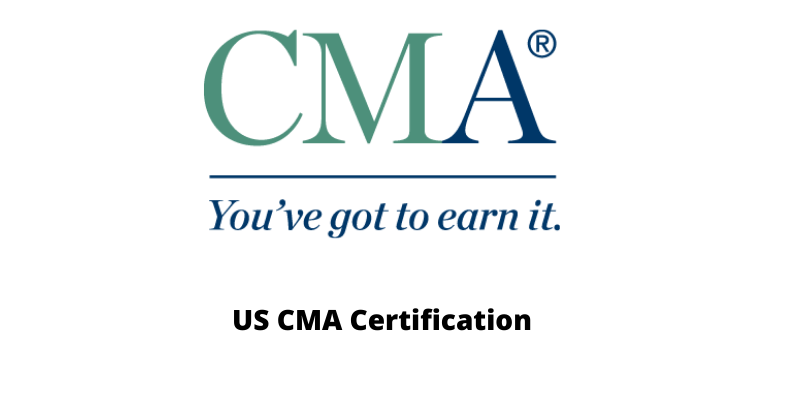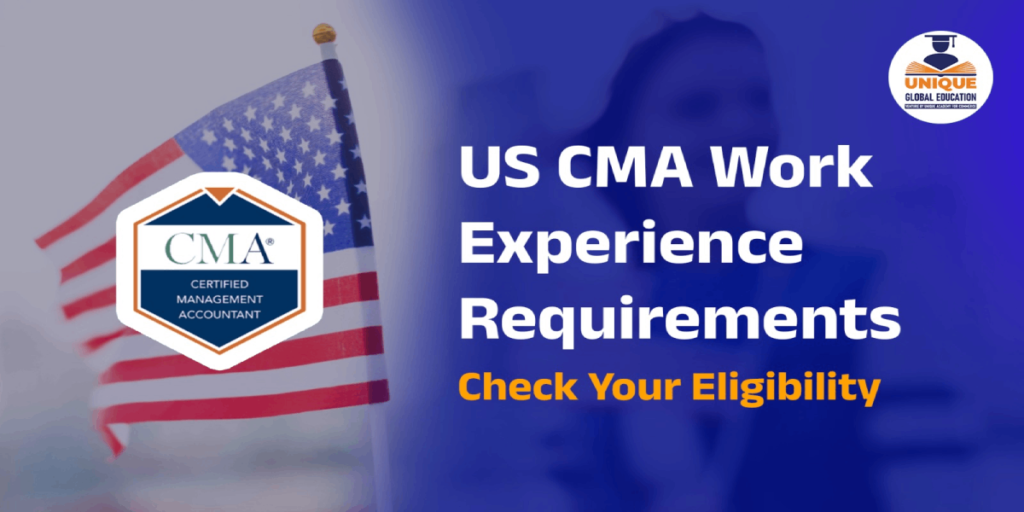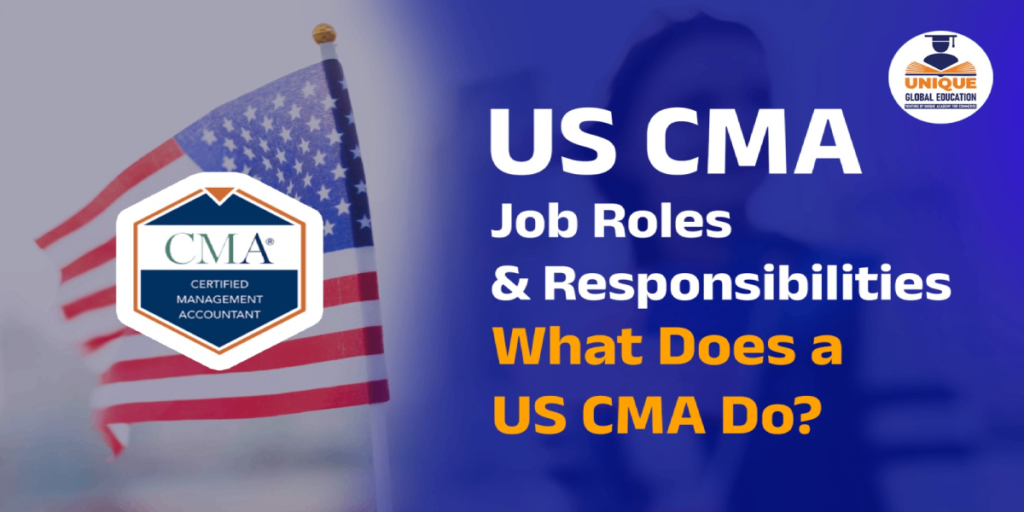If you are considering building a career in accounting or finance, there are two strong qualifications that you may have heard of – the CPA (Certified Public Accountant) and the US CMA (Certified Management Accountant). Both garner respect, open global doors and increase earning power. But which one is the right one for you?
That answer will vary depending on your career interests, personal interests, and where you want to work in the future — whether in public accounting, corporate finance, or in management. In this article, we will dive deep into the CPA vs US CMA comparison – cover in detail their scope, course pattern, eligibility, job roles, salary and more.
Table of Contents
1. What is CPA?
CPA?is a professional designation granted by the American Institute of Certified Public Accountants (AICPA). It is seen as the gold standard in public accounting, and is needed for jobs such as audit, tax or financial reporting in the U.S.
CPA holders often work in:
- Public accounting (any size Big 4 or midsize)
- Audit and assurance
- Tax consultancy
- Financial reporting and compliance
- Forensic accounting
It is a requirement for those who wish to sign audit reports or practice as public accountants in the U.S.

2. What is US CMA?
US CMA (Certified Management Accountant) is provided by the Institute of Management Accountants (IMA). It emphasizes the role of management accounting, financial strategy and performance analysis.
CMA holders typically work in:
- Corporate finance
- Budgeting and forecasting
- Cost control
- Strategic decision-making
- Internal financial planning
Perfect for people who want to achieve their dreams at the corporate level, boosting a company’s profitability and efficiency.
3. Key Difference: Scope and Focus
| Area | CPA | US CMA |
| Primary Focus | Public accounting, audit, tax | Management accounting, financial strategy |
| Industry | Public firms, audit, consulting | Corporates, MNCs, manufacturing, tech |
| Work Style | Compliance-focused | Strategy and decision support |
| Global Recognition | Primarily U.S. and Middle East | Global (100+ countries) |
Bottom line:
CPA is more appropriate if auditing or tax consulting is where you want to be. US CMA is the right choice if you aspire to make a career in corporate finance and strategy.
4. Eligibility Criteria
CPA Eligibility (for International Students such as Indians):
- 4 Year Bachelor’s Degree (Probably 120 – 150 credit hours)
- (CA) Final examination or Master’s degree or Post Graduate Diploma in any of these subjects: Physics, Chemistry, Mathematics, Statistics or Economics. And in some U.S. states like you will need to do a Master’s or CA equivalent.
- State Eligibility: Must meet needs (determined by state)
US CMA Eligibility:
- Graduate of any four-year course in a reputable university
- Two years of equivalent experience (may be achieved either prior or subsequent to passing the exams)
Pro tip:
US CMA is also easier for–most Indian graduates to begin with. Is this conclusion too direct – ICFP has in general seemed to look for more evaluation and documentation than CPA.
5. Exam Structure
| CPA Exam: | US CMA Exam: |
| 4 papers Auditing & Attestation (AUD)Business Environment & Concepts (BEC) (replaced with BAR in 2024)Financial Accounting & Reporting (FAR)Regulation (REG) | 2 papers Part 1: Financial Planning, Analysis and PerformancePart 2: Strategic Financial Management |
| Format: 4-hour exam per paper | Format: 4-hour exam per part All in all, you could finish in 6 – 12 months. |
| Total duration: it usually takes around 12 – 18 months | Key Insight: CPA is a wider and deeper syllabus. CMA is shorter, specifically financial management leaning version. |
6. Pass Rates
- CPA average pass rates: 50–55% per paper
- US CMA pass rate global: Approximately 45–50%
But with the proper preparation and study plan, both are an achievable goal!
7. Course Cost Comparison
| Component | CPA (approximate) | US CMA (approximate) |
| Course Material | ₹1.5 – 2.5 lakhs | ₹80,000 – ₹1.2 lakhs |
| Exam Fees | ₹2 – 2.5 lakhs | ₹90,000 – ₹1 lakh |
| Membership/Registration | ₹30,000 – ₹40,000 | ₹15,000 – ₹20,000 |
| Total | ₹4 – 5 lakhs | ₹1.5 – 2 lakhs |

8. Job Roles After Qualification
CPA Job Roles:
- Auditor
- Tax Consultant
- Financial Reporting Specialist
- Forensic Accountant
- Compliance Officer
- Risk Advisory Associate
US CMA Job Roles:
- Financial Analyst
- Cost Accountant
- Budgeting Manager
- FP&A Analyst
- Corporate Controller
- Business Strategy Manager
Fun Fact:
A lot of large company CFOs are US CMAs because the certification is all about decision making and financial planning.
Get Details for US CMA Online & Face to Face Batches
9. Salary Comparison (India)
| Role | CPA Average Salary | US CMA Average Salary |
| Entry-Level | ₹6 – ₹8 LPA | ₹5 – ₹7 LPA |
| 3–5 Years Experience | ₹10 – ₹18 LPA | ₹9 – ₹15 LPA |
| Senior Roles | ₹25 LPA+ | ₹20 LPA+ |
10. Global Recognition and Mobility
- CPA-You cannot legally work as a licensed accountant in the United States without it. It’s also a staple in Canada, the Middle East and parts of Asia.
- US CMA is well received in more than I00 countries, primarily in sectors such as manufacturing, IT, pharma, consulting and the Middle East, India, the US and Europe.
Pro Tip: If you are going to settle/work in USA then do go for CPA. If you want to make a career in India or abroad as a corporate profile, CMA is one of the wonderful options.
11. Difficulty Level
- CPA is a very academic, U.S. law, regulation, and GAAP-based curriculum.
- US CMA is theoretical and more related to business decision making, costing and analytics.
They’re both tough in their own way. The solution is to select one that best plays to your strengths.
Conclusion: Which One Should You Choose?
Choose CPA if:
- You are looking to work in audit or tax or in public accounting
- You want a place to lay down roots or work in the U.S.
- You would like to work with Big 4s or U.S. clients
Choose US CMA if:
- You are interested in corporate finance or FP&A
- You like planning, budgeting, and analysis roles
- You’re looking for a career in MNCs without the regulatory hassle
Final Thoughts
CPA vs CMA – Which is better Both CPA (Certified Public Accountant) and CMA (Certified Management Accountant) are prestigious titles in the field of accounting and finance. They are pathways into different career paths — but both can lead to great opportunities.
Rather than ask which is best (a question best answered on your own), ask: What kind of work do I want to do? Where do I want to work?
Your answer will help you decide.
Footnotes
- CPA certification information sourced from the American Institute of Certified Public Accountants (AICPA).
- US CMA certification details sourced from the Institute of Management Accountants (IMA).
- Salary figures and job roles referenced from multiple publicly available sources, including Glassdoor, Payscale, and LinkedIn Salary Insights.
- CPA exam structure and requirements updated from the NASBA – National Association of State Boards of Accountancy.
- US CMA eligibility and curriculum as published by IMA’s CMA Handbook.
- Global recognition and industry focus compiled from official websites and certification bodies’ regional reports.
References:
- AICPA Official Website: https://www.aicpa.org
- IMA – US CMA Certification: https://www.imanet.org
- NASBA CPA Requirements: https://www.nasba.org
Get Details for US CMA Online & Face to Face Batches






